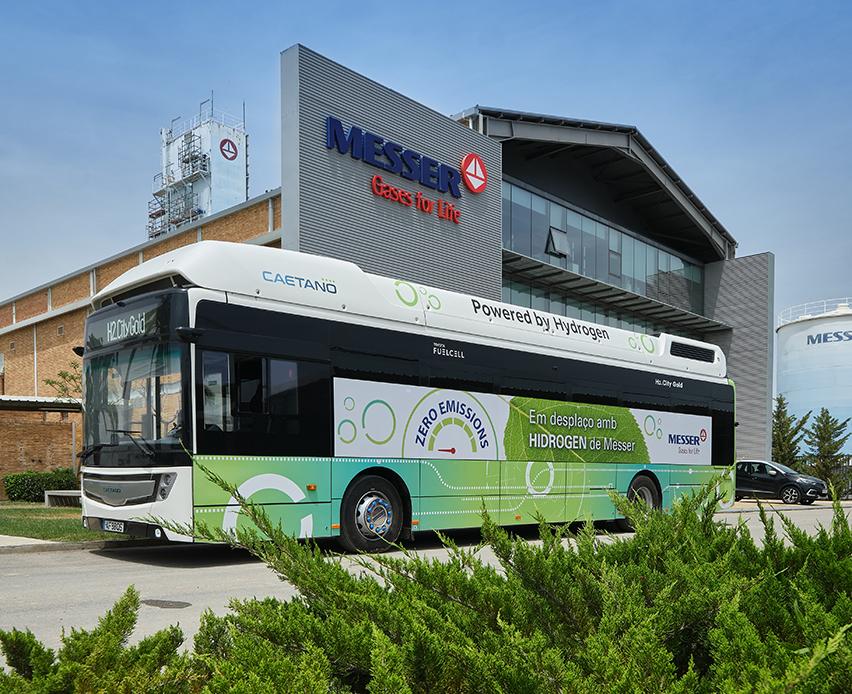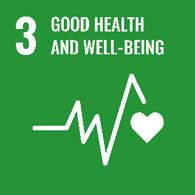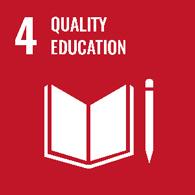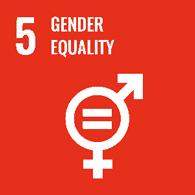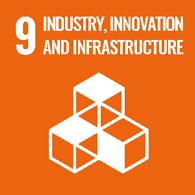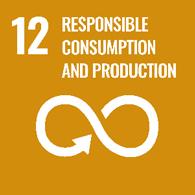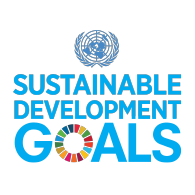UN Goal 9 - Industry, Innovation and Infrastructure
Breadcrumb
Child page UN Goal 9
Introduction UN Goals
In 2015, under the aegis of the United Nations, the international community adopted Agenda 2030. It lays out 17 global goals together with the call to implement measures to achieve those goals. In particular, the Sustainable Development Goals No Poverty, Health and Well-being, Quality Education, Gender Equality, Decent Work and Economic Growth, Industry, Innovation and Infrastructure, Resonsible Consumption and Production, Climate Action and Peace, Justice and Strong Institutions are of great importance to Messer. Both global and local projects and activities, as well as initiatives supported by Messer, contribute to various sustainability goals. The individual projects contribute to long-term improvement and can be viewed here:
Sustainable growth through investment
Germany: Air separation unit at Saint-Gobain Isover
In October 2020, Messer started up its third air separation unit in Germany. It is located in Speyer on the grounds of the insulation manufacturer SAINT-GOBAIN ISOVER G+H AG. The oxygen it supplies to the company improves the efficiency of the burners in its glass melting operation. With this additional unit, Messer is reinforcing its presence in southwestern Germany. Supply routes to a large share of our local customers have already been shortened considerably. Rastatt-based Basi holds a stake in the unit and takes some of the liquid products.
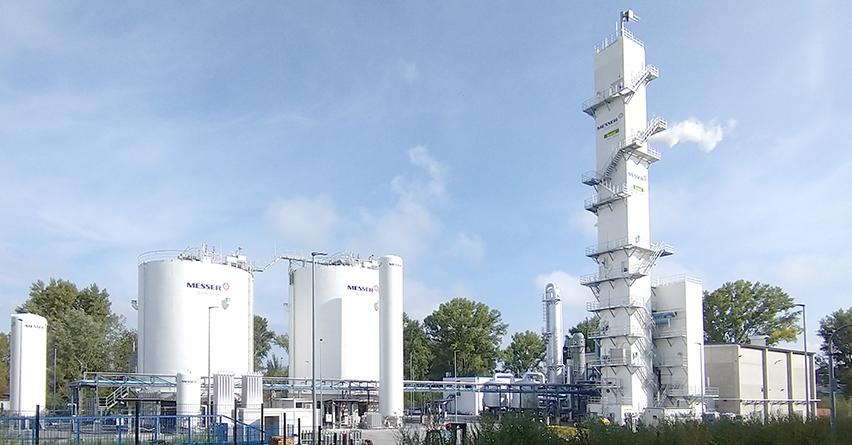
France: CO2 recovery unit in Lacq
Messer extended its partnership with Vertex Bioenergy and is building a new, fully automated CO2 recovery unit at its location in Lacq. The unit can be operated remotely and is part of Messer’s long-term corporate strategy. At the same time, the unit supports the expansion of the CO2 business in northern Spain. With this investment of about 11.3 million euros, Messer is doubling its future production capacity in Lacq to 130,000 metric tons of raw CO2 per year. Start-up is planned for July 2022. Vertex Bioenergy’s Lacq plant produces 235 million liters per year of biofuel made from corn. That makes it a European market leader in the biofuel industry as well as the leading biofuel producer in Spain and France.
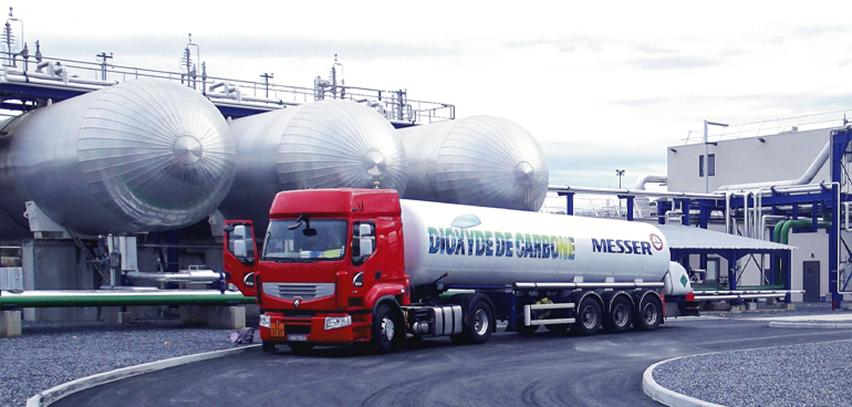
Spain: Construction of fifth air separation unit begins
Messer has started construction of a new air separation unit in Vilaseca near Tarragona. It will be Messer’s fifth unit in Spain. In the final expansion stage, its daily production capacity will reach 2,400 metric tons of nitrogen, oxygen and argon. The unit is being built on the grounds of Messer’s filling plant there, which will remain at the site: only a few tanks and one filling unit will be converted. The project is scheduled for completion by December 2021. The new production unit will be connected to Messer’s pipeline network to satisfy the increasing demand for oxygen and nitrogen to serve the chemical industry in Tarragona. The region’s manufacturing companies will also be supplied with gases – liquefied in tank trucks and in gaseous form in gas cylinders. During the planning and construction phase, some 200 people will be working on the project; after completion, Messer will employ more than 20 people at the new unit.
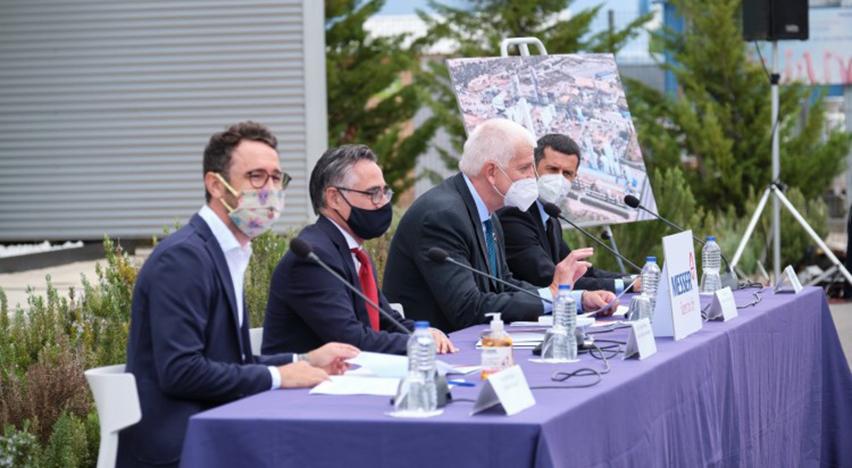
Poland: VPSA unit for oxygen supply
Saint-Gobain Isover has been active on the Polish market since 1993 with its own production of insulation materials made of glass wool and mineral wool. At the Gliwice site, oxygen is used to optimize the combustion process of the glass wool and mineral wool furnaces. In 2020, Messer signed a long-term agreement to supply oxygen from a Vacuum Pressure Swing Adsorption (VPSA) unit. The new VPSA plant is scheduled to go into operation in April 2022.
Czech Republic and Slovakia: Takeover of Air Liquide
In 2020, Messer took over the companies of Air Liquide in the Czech Republic and Slovakia. The acquired operations include a total of four on-site units for oxygen and nitrogen as well as a filling plant for cylinder gases. Messer has already been active in Slovakia and the Czech Republic since 1991. Prior to this acquisition, Messer in Slovakia had three-cylinder gas filling plants, one hydrogen unit and three on-site units. In the Czech Republic, Messer previously operated one air separation unit with a direct pipeline supplying three major customers as well as twelve on-site units, two-cylinder gas filling plants and done acetylene plant.
Hungary: Recovery and storage of methane
Messer started up a new unit that recovers and stores high-purity methane at the site of a fertilizer manufacturer in Hungary. Methane is a byproduct of treating the purge gas from the ammonia plant. It is separated out of the process and stored in liquid form with a purity of more than 99.5 percent. The unit has a capacity of 700 metric tons per year. High-purity methane has a wide range of applications: It is used as calibration gas for heating and combustion equipment, for example, and as fuel in aerospace testing. It is also used in an extremely wide range of applications in the chemical industry and in the manufacture of carbon fiber components such as brake linings.
Slovakia: Argon recovery
In the course of installing an argon recovery unit in Slovakia – a project of Messer’s Slovakian subsidiary in collaboration with Messer’s engineering team in Krefeld, Germany – two argon storage tanks with a capacity of 200 cubic meters each were installed.
Slovenia: Longest underground pipeline for nitrogen
In July 2020, Messer in Slovenia put into operation our longest underground nitrogen pipeline made of polyethylene to date. The supply line is 8,028 meters long. The project was carried out in collaboration with Messer’s engineering experts from Krefeld, Germany. Along its course, the pipeline crosses more than 200 plots of land, one stream, one main road, and one natural gas pipeline before finally reaching our customer, a tire manufacturer in Kranj. The pipeline carries high-purity nitrogen from our air separation unit in Škofja Loka.
USA: New carbon dioxide unit in California
In 2020, Messer started up a new carbon dioxide (CO2) unit in Keyes, California. Messer is supplying existing and new customers in northern California and the surrounding regions from this new plant by rail. The new unit produces up to 450 metric tons of CO2 per day, which is used in carbonated beverages and to freeze and chill food products as well as in the electronics industry of the region. Messer recently began working with Aemetis, Inc. and taking raw CO2 from its ethanol plant for processing. Messer operates two other CO2 units and two air separation units in California.
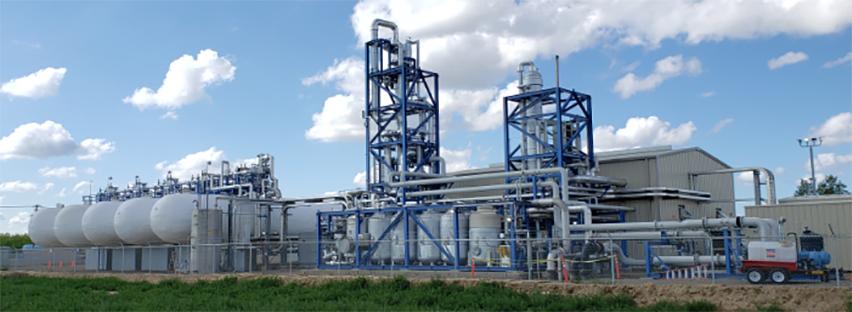
USA: New air separation unit in Georgia
In 2020, Messer started up a new air separation unit in Adel, Georgia, investing more than 40 million dollars in the highly efficient plant. It supplies gases to companies across the southeastern U.S., strengthening Messer’s presence in that fast-growing region. Our customers there serve the healthcare sector, produce food and beverages, manufacture metal and glass, and operate independent welding and gas centers.
USA: Largest production unit for atmospheric gases in Delaware
The air separation unit we successfully started up in Claymont, Delaware, in 2020 is our largest atmospheric gases production unit currently in operation in the USA. Its investment cost was about 100 million dollars. The unit produces up to 1,200 metric tons per day of liquefied gases such as oxygen, nitrogen and argon. It also supplies gaseous products via pipeline to customers up and down the Delaware River. The Delaware Valley metropolitan region’s customer base spans almost all industries, including metal processing, the food and glass industry, chemicals, healthcare and the energy sector. Thanks to the latest technology, our unit features extremely efficient energy consumption – which is also one of the ways we help reduce CO2 emissions.
USA: Strategic investment in Indianapolis, Indiana
In 2020, Messer in the Americas started the construction of a new, state-of-the-art air separation unit in Indiana. This 38-million-dollar investment in Indianapolis as a business location underscores our strategic commitment to further expansion in the USA. The expansion of our production capacities will enable us to satisfy the increased demand for industrial, food-grade and medical gases throughout Indiana and the Midwest. We currently operate seven sites in Indiana and employ about 90 people there. With the new investment in Indianapolis, we are creating an additional 23 permanent jobs.
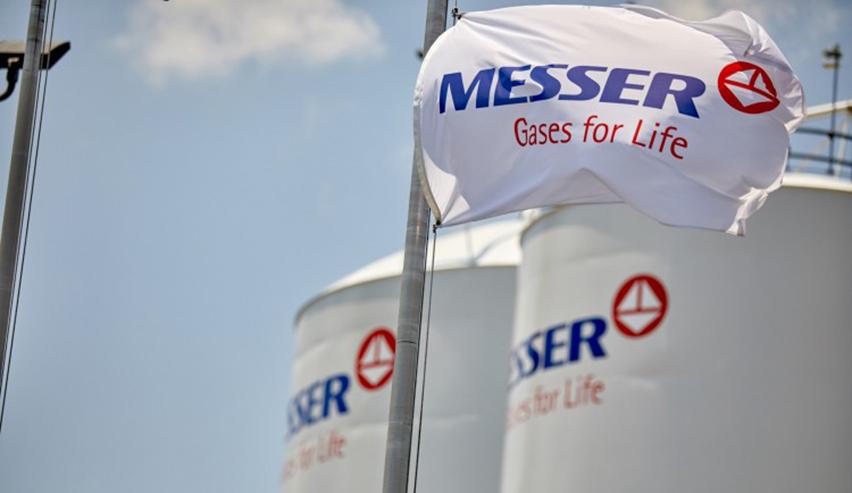
China: Production plant at the new site in Kunming
In August 2020, an air separation unit went into operation at Messer’s new production site in Kunming. The plant is located in the Anning Industrial Park in Yunnan Province in southwestern China. It will be operated by the subsidiary Anning Messer. With a production capacity of 300 metric tons per day of liquid oxygen, nitrogen and argon, it will supply our customers both in the industrial park and in the surrounding area.
China: Two new production units in Hunan
To meet Xiangtan Iron & Steel’s increased gas demand, Messer started up a new air separation unit on the Xiangtan site. It has a capacity of 1,400 metric tons per day of gaseous oxygen. A new air separation unit has been installed in Ningxiang near the provincial capital of Changsha. With a capacity of up to 600 metric tons per day of liquefied gases, it is designed to meet the processing industry’s rapidly increasing demand and to reinforce Messer’s leading market position.
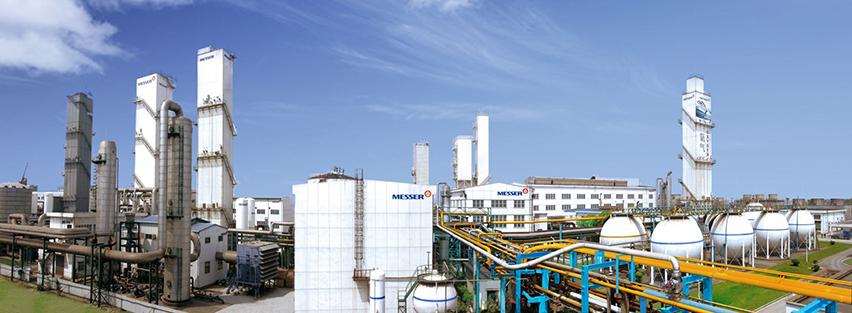
China: Doubled production capacity in Shunde, Guangdong
At the Shunde site, Messer has built a second air separation unit and doubled the production of liquefied gas to more than 1,200 metric tons per day. Most of the additional product will be consumed by the rapidly growing electronics industry.
Thailand: First filling plant for gas cylinders
In Thailand, Messer started out strictly as a distributor delivering gases by tank truck from China and Vietnam. At the same time, an application engineering department was established. Its specialists provided specific expertise to support a continuously growing customer base. Along with delivery of argon, nitrogen, oxygen and carbon dioxide by tank truck, gases are now also offered in cylinders. A storage facility for liquid argon was installed in Samut Prakan, and in September 2020, Messer filled the first cylinders at its own new filling plant in Bangpoo. Messer now supplies medical oxygen to medium-sized hospitals.
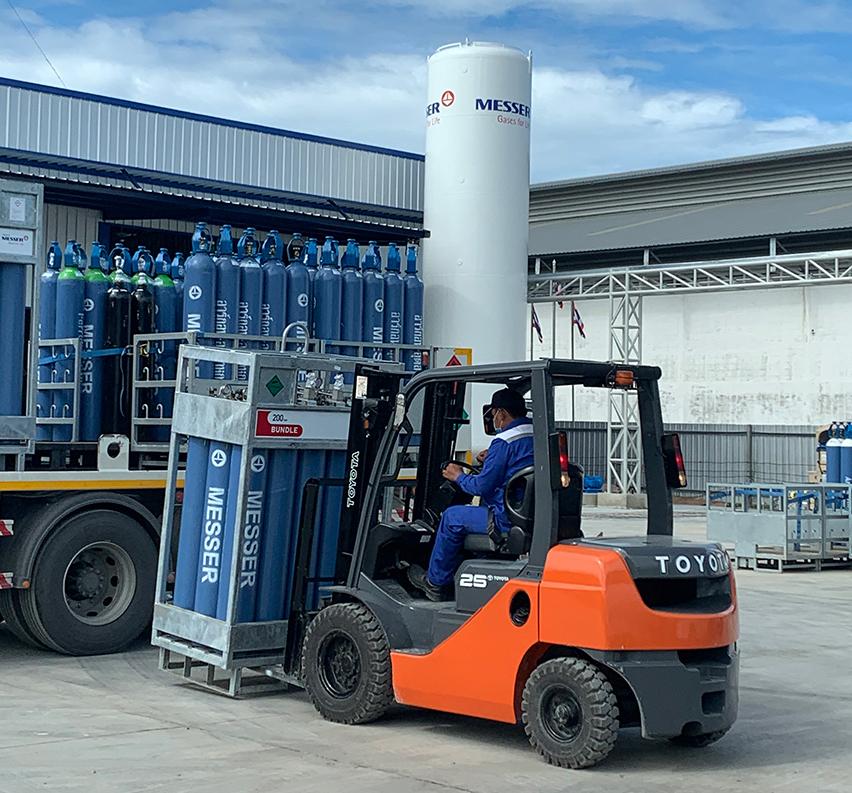
Belgium: CO2 recovery at Alco Bio Fuel biorefinery
Messer, together with the Alco Bio Fuel (ABF) biorefinery and IJsfabriek Strombeek, is building a second CO2 recovery plant in Ghent. It is due to go into operation in 2022. In combination with the first plant, which is already in operation, the recovery capacity is then expected to reach 160,000 metric tons of carbon dioxide a year. The biogenic carbon dioxide is a by-product in the process of producing ethanol from biomass. Instead of being released directly into the atmosphere, as is usually the case, it is captured in the two recovery plants and made available for CO2 applications.
Akkordeon UN Goal 9
France: Messer presents Silensnow technology at Solutrans
Messer presented its new Silensnow technology at Solutrans in Lyon, France, on November 19 - 23, 2019. Together with its partner Frappa, Messer developed the new cryogenic Silensnow technology for the temperature-controlled transport and logistics sector. This patented process for vans uses dry ice snow – carbon dioxide in solid form at -78.5 degrees Celsius – as its source of cooling. The cooling capacity of the dry ice is achieved through an indirect cooling system. This process meets the environmental and regulatory requirements of transport companies. Moreover, Messer has developed its own service station, which makes it possible to fill the system with dry ice safely and rapidly. As a byproduct of the chemical industry, the CO2 from Messer is collected and cleaned, liquefied and appropriately certified. It is used in a variety of applications. With Silensnow, it is used as a source of cooling when transporting fresh and frozen products to urban areas.
Efficiency increase through digital improvements
Messer Group and Messer Industries Western Europe are pursuing the goal of a strategically and technically reoriented IT infrastructure with modern, globally established standards. A standardized and flexibly scalable IT structure will create the basic conditions for improved business processes, for greater efficiency, flexibility and agility. Online collaboration and protection against cybercrime will also be reinforced.
Moreover, Messer continuously invests in a visible, modern internet presence that offers visitors satisfactory information and an easy means of contact. User-friendly e-services, online shops and search engine-optimized content will help customers find the desired search results and thereby make their purchase decision. In operation since October 2020 under the banner “Perfect Match,” the expanded digital platform now includes local e-services and online shops for hardware products such as pressure regulators and cylinder valves. Warehouse inventories and personalized sale prices can be displayed here.
Employees in the USA and Canada have access to a new SharePoint-based intranet for greater productivity. The new communication platform is compatible with mobile devices.

Among other things, it offers a search function, links to support tools and process support tools, and quick links to frequently visited resources and websites. The new SharePoint-based intranet solution will also be available in South America, thereby increasing networking opportunities for employees of our subsidiaries in both North and South America.
Since 2020, ASCO Carbon Dioxide has been offering digital add-on products to its customers in the dry ice production segment: The “i-Series Product Line” develops the potentials and benefits of networking and IIoT (Industrial Internet of Things) for their dry ice production units. Based on sensor components and state-of-the-art communication technology, ASCO offers services in the area of remote access, remote data and remote management services to interested companies. With this development – just like with the market launch of the new portable CO₂ safety detectors – ASCO is addressing specific customer requests.
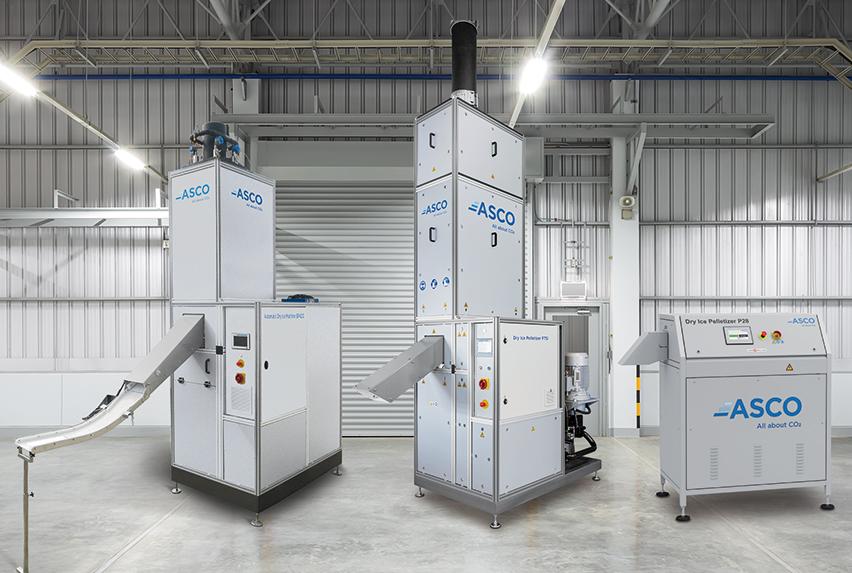
New CRM for long-term customer retention
Messer has decided to introduce a new unified Customer Relation Management (CRM) system which ensures better efficiency and service quality in the area of sales while at the same time improving process organization. Once it has been rolled out, the new CRM system will support the day-to-day business processes of almost 1,000 Messer employees in Europe in 15 languages. It will also further increase our productivity and efficiency for our customers, enabling us to retain them in the long term.
Added value enhanced through digitalization
Messer uses digital applications to optimize business and production processes as well as internal and external communication. As part of the changes to our IT infrastructure, we have decided to use globally established standards for all our national subsidiaries in order to allow us to operate our central IT systems and applications and ensure even better protection of the information they provide. We support our production, bulk and cylinder gas management – from filling to taking back the empty cylinders from customers – with a digital cylinder tracking system. Bulk management is supported, among other things, with a tool for digital on-site processing of liquid gas transport orders. We are rolling out our bulk tank telemetry system to all tank facilities in Europe to improve trip planning, protect the environment and reduce costs.
Advanced Process Control and automatic filling of our bulk fleet
Environmental protection and cost reduction are also the aims of our Advanced Process Control system, which helps reduce the consumption of electrical energy in the operation of our air separation units through digital process optimization. Furthermore, we are introducing standardized automatic filling systems at all our European sites. This will make it possible to fill our bulk vehicles around the clock without the support of local operators. The system facilitates checking of driver and vehicle licenses. The driver is assigned a filling station, the filling pump and quality analysis are activated, and the necessary transport and delivery documents printed out.
Remote Operation & Control Centers
Over the past three years, we have succeeded in introducing largely automated control processes for our facilities. In addition, we have begun to establish central Remote Operation Centers (ROC). In each case, the purpose of this is to group a number of our facilities into clusters that are monitored simultaneously by the operators of large central on-site facilities. There will no longer be shift and weekend working at the facilities being monitored. The first cluster was established in 2021 in Southeast Europe. At the moment, the plants in Škofja Loka (Slovenia), Bor (Serbia), Zenica (Bosnia and Herzegovina) and Resita (Romania) can be monitored from Smederevo (Serbia).
Worldwide container location tracking via GPS
In 2021, Messer in Europe equipped the first helium containers suitable for sea freight with a new telemetry system. It features GPS positioning, allowing the exact location of our containers on the high seas to be determined at any time. In addition, the fill levels and pressure of the tanks are transmitted via GSM (Global System for Mobile Communications). This can help improve supply chain efficiency and facilitate identification of technical problems.
China: Accelerating the digital transformation
In China Messer is actively using digitalization initiatives to improve internal cooperation, increase operating efficiency, support business growth and reduce costs. “Accelerating the digital transformation” is one of the core elements of Messer’s latest strategy update. One of the highlights of 2021 was the implementation of the Cylinder Business Management System (CBMS), which was introduced at three companies in the fourth quarter of 2020. The CBMS covers the entire cycle of the cylinder business process and also serves as an effective tool for managing cylinder stocks. In 2021, a further six companies successfully completed the introduction of the CBMS.
Columbia: Digital transformation of work processes
In Colombia, Messer implemented a tool that contributes to the digital transformation of work processes with our customers. The tool facilitates digital analyses, mobile applications and the integration of social media. It allows our sales team to interact even more effectively with existing and potential customers. Another benefit of the application is that it helps to identify potential new business, implement virtual sales strategies and improve how users experience our website.
Germany / Serbia: First start-up via Remote Desktop
The start-up of a facility was carried out via online communication for the first time. Following the construction of our new oxygen and nitrogen liquefier at Smederevo, Serbia, which was challenging due to the pandemic, engineering teams in Serbia and Germany were in direct contact via live transmissions for several weeks to prepare the start-up via Remote Desktop. The first deliveries of liquid nitrogen and oxygen from the new liquefier took place in mid-April 2021. The Smart Glasses used by Messer in Serbia and Corporate Engineering & Production have, for several months, been a helpful tool in other start-ups and maintenance work as well.
USA: Focus on digital transformation
At Messer Americas, digitalization is becoming an integral part of the business strategy and delivered through a wide portfolio of technology enabled transformation projects . The focus is on leveraging technology platforms to enhance our core gas application technologies, improve the customer experience and empower employees . Cloud computing services, mobile tools, data and analysis platforms, robotic process automation (RPA) and artificial intelligence (AI) are among the many examples where digital technologies offer Messer considerable benefits and transformation potential.
USA: Process optimiziation through digitalization
The "Supplier Information Management" (SIM) platform allows Messer Americas to speed up and simplify the search for suppliers or service providers. Using SIM, our employees have access to an online form that requests the country-specific requirements for each supplier. After completing the entry and submitting it, the request goes through the relevant approval processes via digital workflows and is supplemented with the requested supplier information. SIM has improved process consistency and simplified the process steps.
USA: Greater productivity through digitalizated supply chain management
As part of its digitalization initiative, Messer in the Americas introduced a digital delivery process for customers and a new app for its driving personnel. Installed on digital tablets, it facilitates the entry of trip-related information and electronic proof of delivery (e-POD). Control functions ensure that the right tank is filled, stipulated product specifications are fulfilled, and customer deliveries are completed. The app facilitates quicker trip planning as well as faster invoice processing for our customers.
Vietnam: Remote-controlled operating control system
With the increasing number of air separators and generators at different locations in Vietnam, Messer put a new remote-controlled system into operation at the beginning of 2021 via a highly secure Microsoft cloud server that would allow all production facilities to be put into safe mode if an unexpected external event occurred that could lead to a shortage of operators on site. After the difficult typhoon season at the end of 2020 and the COVID-19 pandemic with its associated lockdowns, as well as for the prevention of other unexpected situations, this system ensures that expert support can be accessed from other sites at any time. Our Messer production team underwent training in the operation of the system to get to know all the particularities of the individual production sites in Vietnam.
Vietnam: Entire maintenance process now digitalized
In 2021, Messer completed the implementation of a new Computerized Maintenance Management System at all its Vietnamese production sites and for all major customers. The entire maintenance planning process, plant monitoring and management, as well as calibration/inspection information and maintenance reports are now digitalized processes. This led to an immediate increase in productivity, cost savings, reduced use of paper and better service quality for Messer’s bulk customers.
Non-contact service via ShareView app
In view of contact restrictions during the coronavirus pandemic, the “Messer ShareView” e-service offered clear benefits. “Messer ShareView” enables our specialists to make virtual contact with customers virtually – to provide direct assistance and advice with technical problems in production operations, for example. The app can be installed on computers, tablets or smartphones and is easy to use. It is designed for the digital transmission of live streams, chats and documents.
Spain: Digital quality certificates
After batch analysis, Messer in Spain issues the appropriate quality certificate for the food-grade and specialty gases it produces and also for the Diveline and Pharmaline brand gases it produces. In the past, that certificate was printed out and affixed to the individual cylinders. With the introduction of digital certificates, Messer is helping to improve quality control processes: the certificate is stored in the filling plant and can be called up with a QR code on the cylinder. In addition, digital safety information for pressurized gas cylinders has been introduced. All cylinder labels include the corresponding QR code.
Messer – A winner of the Axia Best Managed Companies Award 2020
After 2016 and 2019, Messer, the world’s largest family-run industrial gases specialist, has once again earned the Axia Best Managed Companies Award in 2020. Presented by Deloitte, WirtschaftsWoche, Credit Suisse and the Federation of German Industries (BDI), the award and stamp of quality recognizes extremely well-managed companies. As one of the award winners, Messer once again impressed the jury with its first-class business management characterized by high innovative force, a strategy focused on the long term, and strong governance structures. In justifying the award, Deloitte observed that Messer is not only a benchmark for extremely well-managed medium-sized companies, but at the same time emblematically represents the future of Germany as a business location.
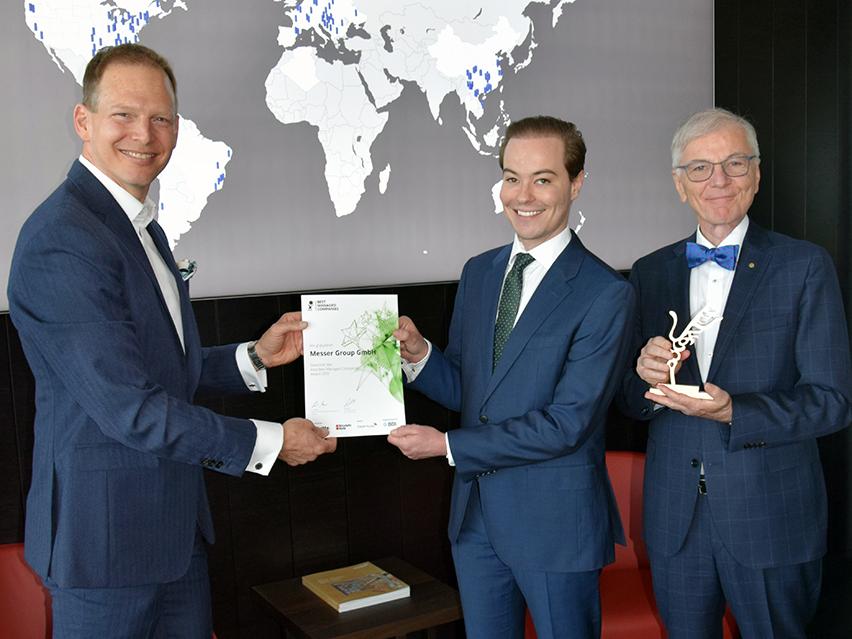
International: Superconductivity for large consumers
The global demand for electricity is growing – and with it, the demand for power lines. But there is less and less space for new transmission line routes. Innovative high-temperature superconductors can alleviate the bottlenecks. Despite their name, they must be cooled with liquid nitrogen. Messer developed a cooling system that can reduce the combined energy losses from the cooling by up to 50 percent. It works without a return line or a recirculation pump, and intermediate cooling stations are not required. This reduces investment costs significantly. This technology makes it possible to implement up to 100-kilometer-long, energy-efficient superconducting cable runs inexpensively and with very high operational reliability.
International: Superconductivity for large consumers
Industrial power lines must provide a great deal of electrical power, however, part of which is lost due to electrical resistance. Superconductors that conduct electricity without losses solve this problem. The prerequisite for this is a very low operating temperature. In the context of the DEMO200 project, a superconducting busbar system is being developed for series production. For DEMO200’s pilot project, which started in 2020, Messer developed a new technical approach for cooling the busbar: to reach the required operating temperature of minus 206 degrees Celsius, the minus 196 degree liquid nitrogen is further “subcooled.” For this purpose, it is fed into a vacuum-insulated tank where expansion under negative pressure cools it down to minus 209 degrees Celsius.

Germany: Fuel from sewage sludge
Together with twelve other partners from five European countries, the Fraunhofer Institute for Environmental, Safety, and Energy Technology UMSICHT is carrying out the EU project “TO-SYN-FUEL.” It is designed to show how thermo catalytic reforming (TCR) can be used to convert organic waste – in this case, sewage sludge – into biofuels, green hydrogen and biochar. In 2020, a demonstration unit went into operation. It converts 500 kilograms per hour of dried sewage sludge into about 50 liters of standard-grade gasoline and diesel. Messer in Germany supported the project with regard to the technical layout along with the specification and design of the hydrogen tank.
Deutschland: Kraftstoff aus Klärschlamm
Gemeinsam mit elf weiteren Partnern aus fünf europäischen Ländern führt das Fraunhofer-Institut für Umwelt-, Sicherheits- und Energietechnik UMSICHT das EU-Projekt „TO-SYN-FUEL“ durch. Es soll zeigen, wie mit Hilfe des thermokatalytischen Reforming (TCR-Verfahren) organischer Abfall – in diesem Fall Klärschlamm –, in Biokraftstoffe, grünen Wasserstoff und Biokohle umgewandelt werden kann. 2020 ging eine Demonstrationsanlage in Betrieb, die pro Stunde 500 Kilogramm getrockneten Klärschlamm in etwa 50 Liter normgerechtes Benzin und Diesel umwandelt. Messer in Deutschland unterstützte das Projekt bezüglich der technischen Auslegung sowie der Definition und Konzeption des Wasserstofftanks.
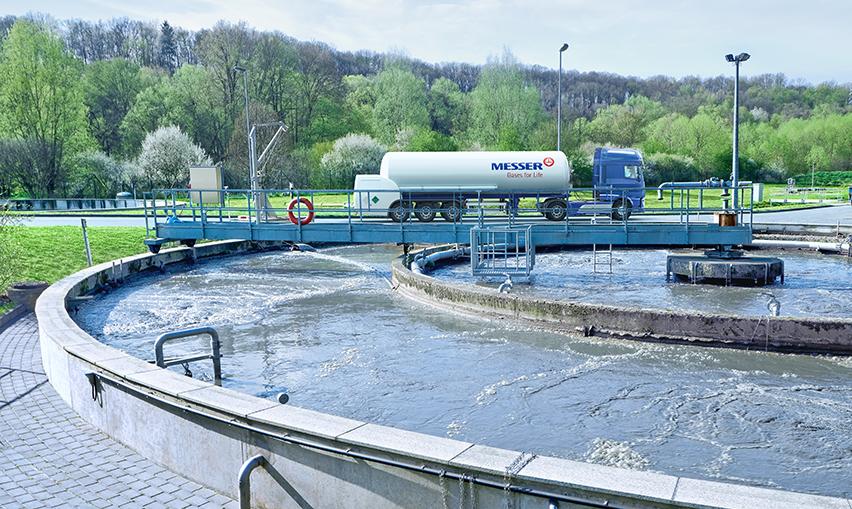
Germany: Toyota and Messer present the “one-stop shop”
Toyota Tsusho and Messer presented the “one-stop shop” in Höchst. This joint concept for fuel cell-powered buses offers all the associated services from a single source – including the necessary hydrogen infrastructure. Patricia Vasconcelos, Managing Director of the Portuguese bus manufacturer CaetanoBus, used the workshop to give a live demonstration of her company’s fuel cell-powered bus. The event was hosted by industrial services specialist Infraserv and organized by LEA LandesEnergieAgentur Hessen.
Hungary: Hydrogen ice stops nuclear fusion
A few years from now, the ITER nuclear fusion reactor currently under construction in Cadarache, France, will begin fusing hydrogen isotopes. In order to be able to stop the reaction, if necessary, the fusion laboratory of the Energy Research Center in Budapest is developing a secure shutdown mechanism based on the introduction of -260°C hydrogen ice. It is fired at high speed into the target area, where it lowers the temperature and therefore the energy level of the plasma. The fusion laboratory’s gas supply system, which operates at a pressure of 300 bar, was installed by Messer. Messer also supplies the project with high-purity gases such as hydrogen, helium, argon, neon and nitrogen.
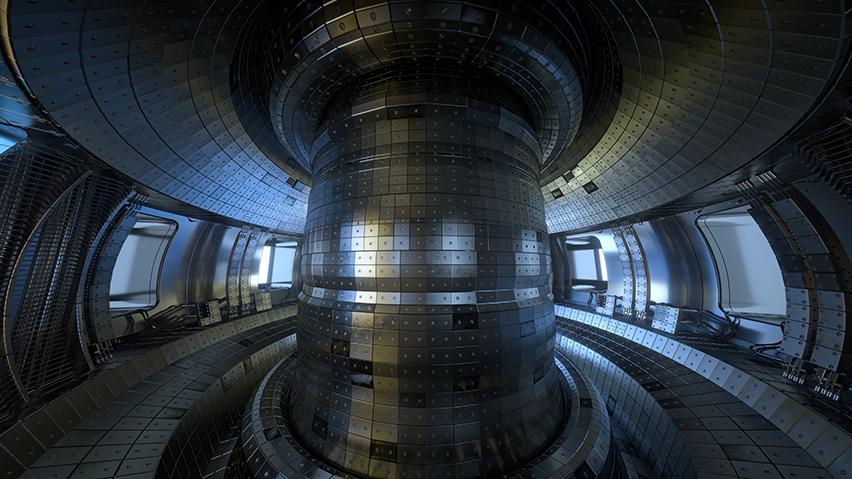
Spain: Emission-free through Tarragona
The City of Tarragona wants to convert its fleet of buses to emission-free vehicles. For the test drive with a hydrogen-powered bus, Messer delivered the gas from a fuel pump installed at the company’s site in Vilaseca. Along with the municipal authorities of Tarragona, Toyota and CaetanoBus were also involved in the organization of the test run. Together with Messer, they offer a comprehensive solution for the operation of hydrogen-powered bus fleets.
